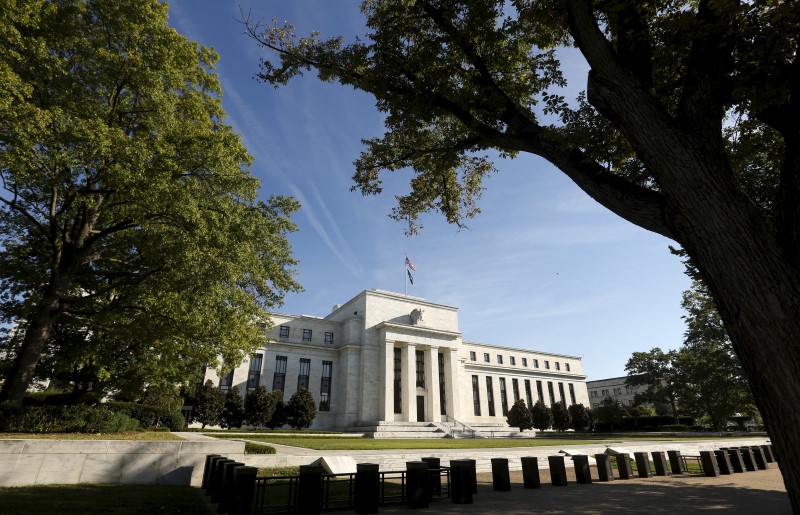(Bloomberg) -- Two of the Federal Reserve’s regional bank presidents expressed some confidence the U.S. economy can rebound strongly after coronavirus restrictions on consumers and businesses are lifted.
“This is a public health crisis” and therefore very different from the typical recession, Raphael Bostic, president of the Atlanta Fed, said Friday in an interview with Michael McKee on Bloomberg Television. “The economy can rebound and some of the shortfalls you are talking about may not be as bad.”
Dallas Fed President Robert Kaplan, appearing on Bloomberg TV a few minutes earlier, offered a similarly upbeat view.
“We were strong before we went into this, and we believe that we’ve got a great chance to come out of this very strong,” he said.
The Fed has slashed interest rates to almost zero and pumped hundreds of billions of dollars into credit markets to ensure they continue to function and tide the economy over as it hunkers down from the virus. Both officials said the central bank was still working on measures to help Main Street businesses.
Many forecasters have predicted a historically sharp drop in economic activity in the U.S. in the second quarter during a deliberately induced withdrawal from economic activity to protect public health. St. Louis Fed President James Bullard has warned the jobless rate would rise to around 30% and GDP output would halve in the second quarter.
Unemployment in the ‘Teens’
The Dallas Fed expects a second quarter drop in GDP, on an annualized basis, to be “in the 20s.” Kaplan also predicted unemployment would peak “in the low to mid teens” before recovering to around 7%-to-8% by year’s end.
“We will have an elevated level of unemployment when we come out of this, to be sure,” he said, which the country would have to spend 2021 working down.
Kaplan said large uncertainties revolve around how many small businesses can survive the virus period, and how eagerly consumers will get back to spending.
Consumer Caution
“We’re going to have to learn what consumer behavior is on the other side of this,” he said. “Consumers are liable to be more cautious, may well save more – you could understand why – and their spending habits may be a little bit different than they were, and you’ll have a higher unemployment rate.”
Bostic emphasized how difficult it is to predict how the economy will react over the coming months. He said his own staff can’t agree on whether the recovery is likely to begin in the third quarter, or perhaps not until the fourth.
“With the recovery, there is a debate when that will happen,” he said. “A lot of the trajectory will depend on how we deal with the public health issue.”
Neither Kaplan nor Bostic said they were troubled by the Fed’s unprecedented efforts to shovel liquidity into financial markets or lend directly to companies through a slew of emergency facilities.
Act ‘Strong’
A $2 trillion virus rescue package -- passed by the U.S. Senate late Wednesday that is expected to be backed by the House of Representatives on Friday -- would allocate an additional $454 billion to support Fed programs. The central bank can use that as a backstop against losses, enabling it to make perhaps as much as $4.5 trillion in additional loans.
“It doesn’t bother me, we’re in an emergency,” Bostic said. “One of the lessons coming out of the Great Recession was act strong. I have every confidence we are going to apply them in a very responsible way,” he said about the Fed’s emergency lending authorities.
The pair couldn’t give a timetable on when the Fed’s so-called Main Street lending program would be up and running. Both said the plan would involve small companies going to their bank to access Fed-backed lending to help them survive the crisis.
“We’re working furiously here at the Fed to have the teams in place and work out the details and get those programs ready, and you can have confidence that we will do that,” Kaplan said.
©2020 Bloomberg L.P.
